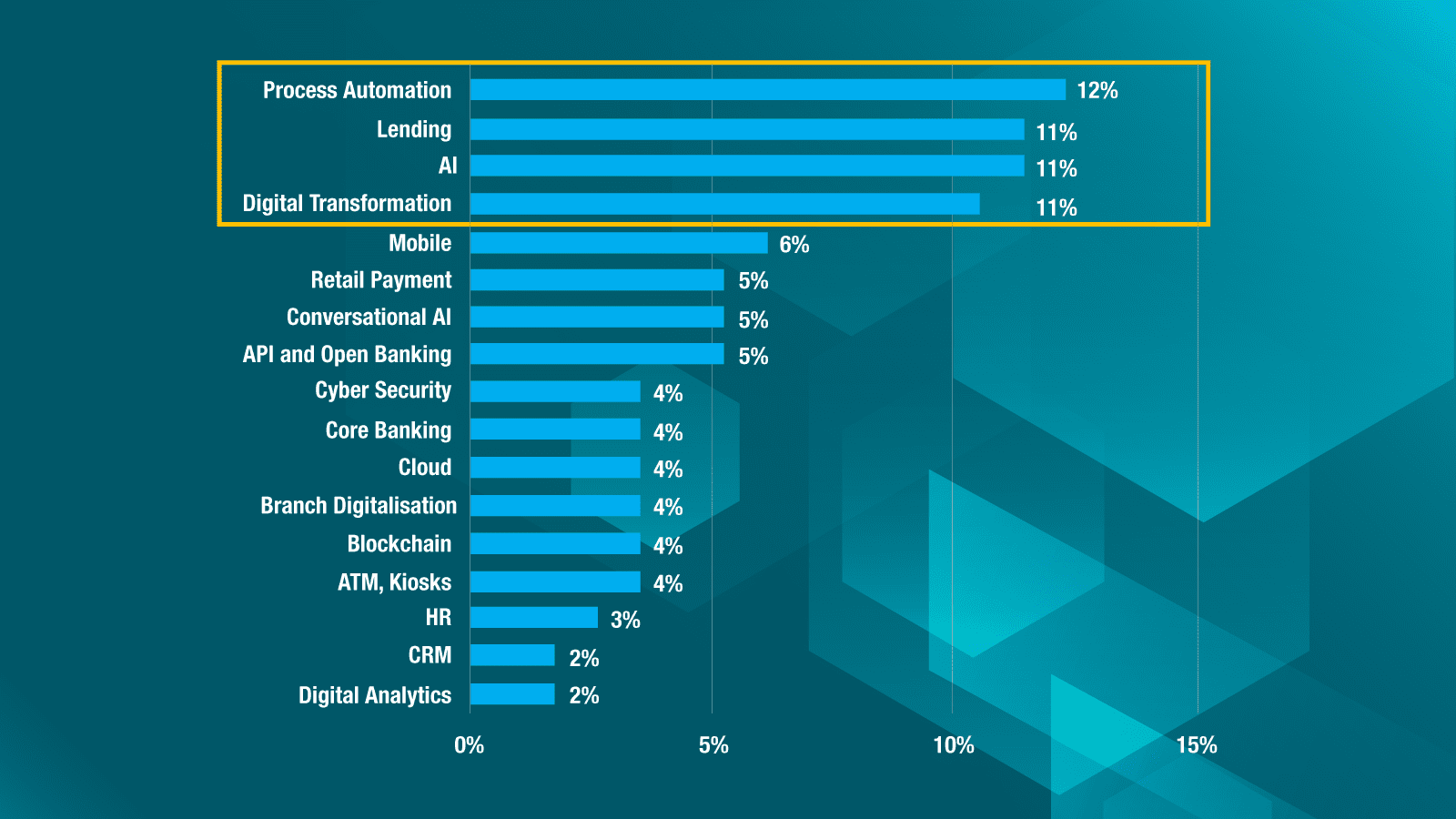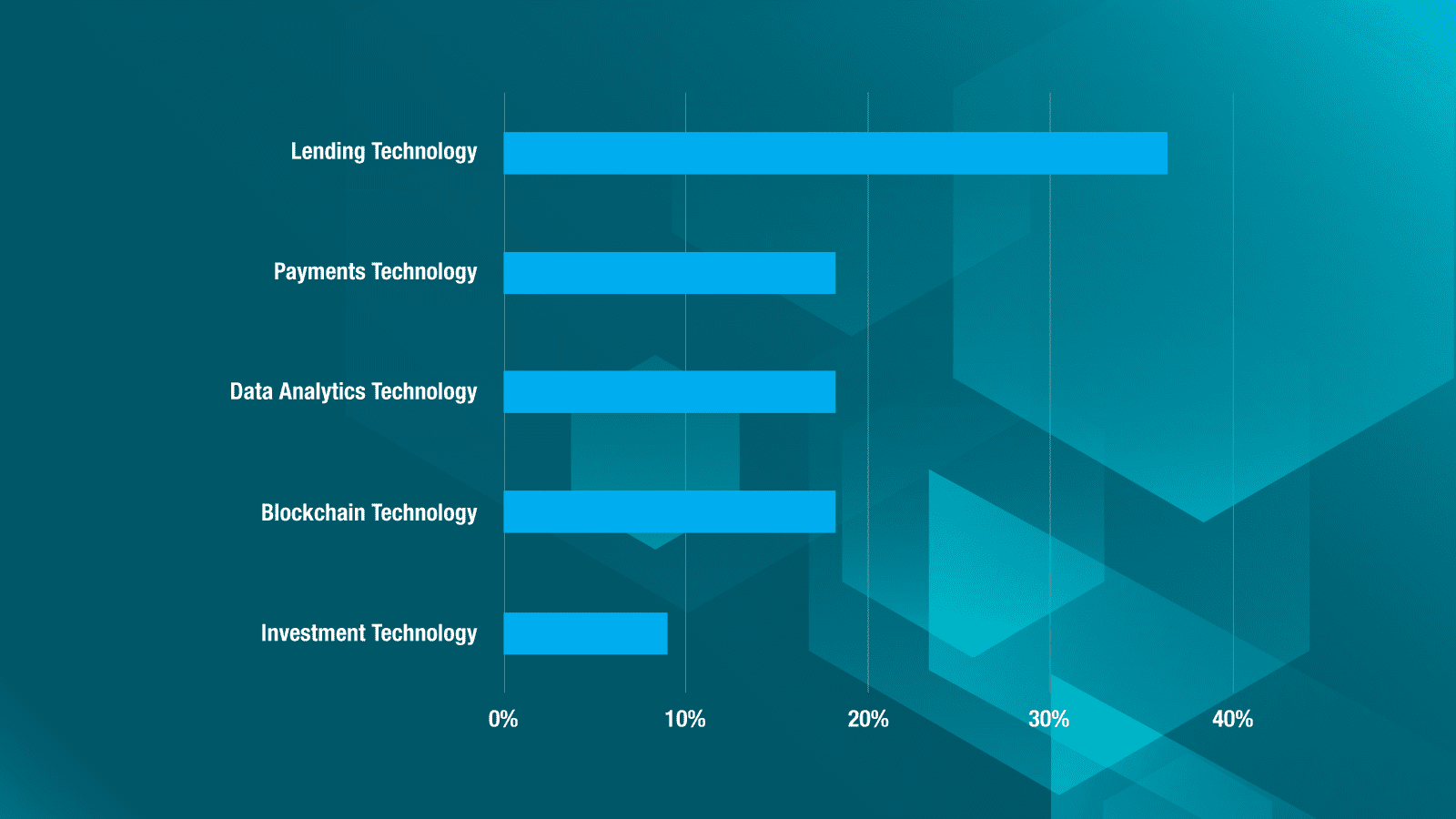The COVID-19 pandemic has fundamentally altered the financial services industry and reset the broader global economy. Technology leaders today continue to grapple with implementing accelerated digital transformation plans as the financial ecosystem undergoes a process of rapid re-engineering. Banks and non-banks alike are more focused on realising the gains of operational efficiency through improved productivity, product delivery and customer satisfaction amid continuing uncertainty.
Industry players look beyond automation to intelligent banking and service expansion
In recent years, banks have been diligent in automating processes and replacing manual tasks but the COVID-19 pandemic has necessitated for more sophisticated use of technology allowing for enhanced end-to-end automation and digitisation of new workflows. Financial institutions (FIs) had to move quickly to redefine job roles and upskill their workforce for more layer of value-add activities. Various players are not just interested in simply migrating products and services digitally but are putting more importance on modernising IT architecture, utilising big data, strengthening customer engagement and monetising their digital channels to offer differentiated products and services. The greater efficiency being realised through robotics-based automation is now enabling FIs to power their digital-based offerings. Artificial intelligence (AI) has become an integral technology within FIs impacting organisational decisionmaking and business operations on the intelligent banking front. FIs increasingly leverage AI technologies not just to offer personalised products and intuitive services but to also strengthen security. Although banks have made progress in utilising AI to combat fraud and manage risks, players have been stuck in the experimental phase in terms of delivering tailored customer experiences. Many banks have launched virtual assistants and chatbots to engage with customers any time of the day. However, a significant component of these conversational interfaces fail to meet its designed purpose with customers meeting digital dead ends in their chatbot conversation.
Process automation is a leading priority for banks
Figure 1. Submissions received for implementation projects launched in 2019

Source: Asian Banker Research
The regulatory environment along with changing customer behaviour is also encouraging financial institutions to embrace the journey towards open banking. We are seeing that various financial technology (fintech) players in the market are developing platforms that can allow financial institutions to connect to the broader application programming interface (API) ecosystem. This has provided both bank and non-bank players alike to scale their business and expand their respective product sets via API and open banking.
Banks launch more process automation initiatives to improve organisational efficiency followed by lending, AI and digital transformation projects to complement offerings
More than 135 submissions were evaluated this year across the 35 award categories from 43 FIs. The key focus for various players in 2019-2020 centred on process automation, lending, artificial intelligence and digital transformation with just under half of the total submissions received falling under these four buckets.
In 2019 banks such as ICBC, ICICI Bank, and Emirates NBD have implemented robotic process automation (RPA) supplemented with machine learning to redesign processes and eliminate dependency on human intervention for repetitive and data-intensive tasks. On the AI front, Shanghai Pudong Development Bank’s multi-channel unified voice service system based on intelligent interaction has created a super realistic 3D digital staff with human real-time interaction ability deployed across all digital channels. From a lending perspective, a key implementation was OCBC Bank’s Digital Instant Car Loan project which eliminated paperfilling processes and the need to share personal sensitive details by leveraging Singapore’s national data repository MyInfo, as well as OCBC Bank’s proprietary real-time know your customer (KYC) and credit assessment systems.
Fintechs continue to encroach the lending and payments space
Figure 2. Submissions received for various platform engagements in 2019

Source: Asian Banker Research
Another standout is Thailand’s Blockchain Community Initiative (BCI) that offers cloud-based blockchain infrastructure for supporting interbank transactions. The shared blockchain infrastructure allows banks and beneficiaries to implement their use cases in a secure and convenient manner for rapid transactions and settlements without any additional investment in an individual platform. Currently 22 banks have signed up to the BCI platform.
From a regional perspective, while the focus of players in the Asia Pacific underscored the implementation of AI projects the priorities of Middle East and Africa (MEA) players remain centred on digital transformation and core banking technology as institutions in the MEA region continue to scale up and enhance their technological capabilities to support and service the multiple operational verticals of FIs. A key strategic priority for banks in both regions is improving their ability and underlying technology architecture to launch new products. Innovation through product agility is critical and investing in digital technologies to target and attract new customer segments while creating value for existing ones.
Industry collaboration with fintech remains in place through ‘coopetition’
An important outcome of the pandemic for FIs is the continued collaboration with the broader fintech community. Banks are already well-placed in terms of their capital base, distribution infrastructure and compliance positioning but at times lack the in-house capability for digital solutions. In a bid to provide this value-add to clients, banks have opted for coopetition, that is collaboration between business competitors in the hope of mutually beneficial results, to leverage non-bank and tech player capabilities and agilities in driving automation and meeting advanced technology needs. A case in point is Lloyds Bank that partnered with the fintech Validis to fast-track the processing of loan applications.
Similarly, there is a great deal of interest from various fintech companies to operate in the lending and payments space (see Figure 2). Lending in particular shows consistent traction and has demonstrated to be the most critical banking vertical that is ripe for disruption as both individual and small and medium enterprise (SME) borrowers alike continue to seek alternative and diversified sources of funding at better and/or more competitive pricing. It could be argued that the industry is seeing a consolidation of the ‘democratisation of finance’ as fintech players provide customers with more options and drive the inclusivity agenda.
The COVID-19 crisis has changed the dynamics of the industry by radically increasing the speed of digitisation. The banks that were behind the curve on investment will no longer have the option of playing it safe or waiting to see how competitors react to the evolving market conditions. Determining how banks can deliver a superior customer experience while also driving returns is the starting point on selecting which technology investments to consider and which fintech companies to partner with. Technology leaders with the requisite digital architecture and systems in place will not only outmanoeuvre their competitors but emerge stronger from the crisis




All Comments